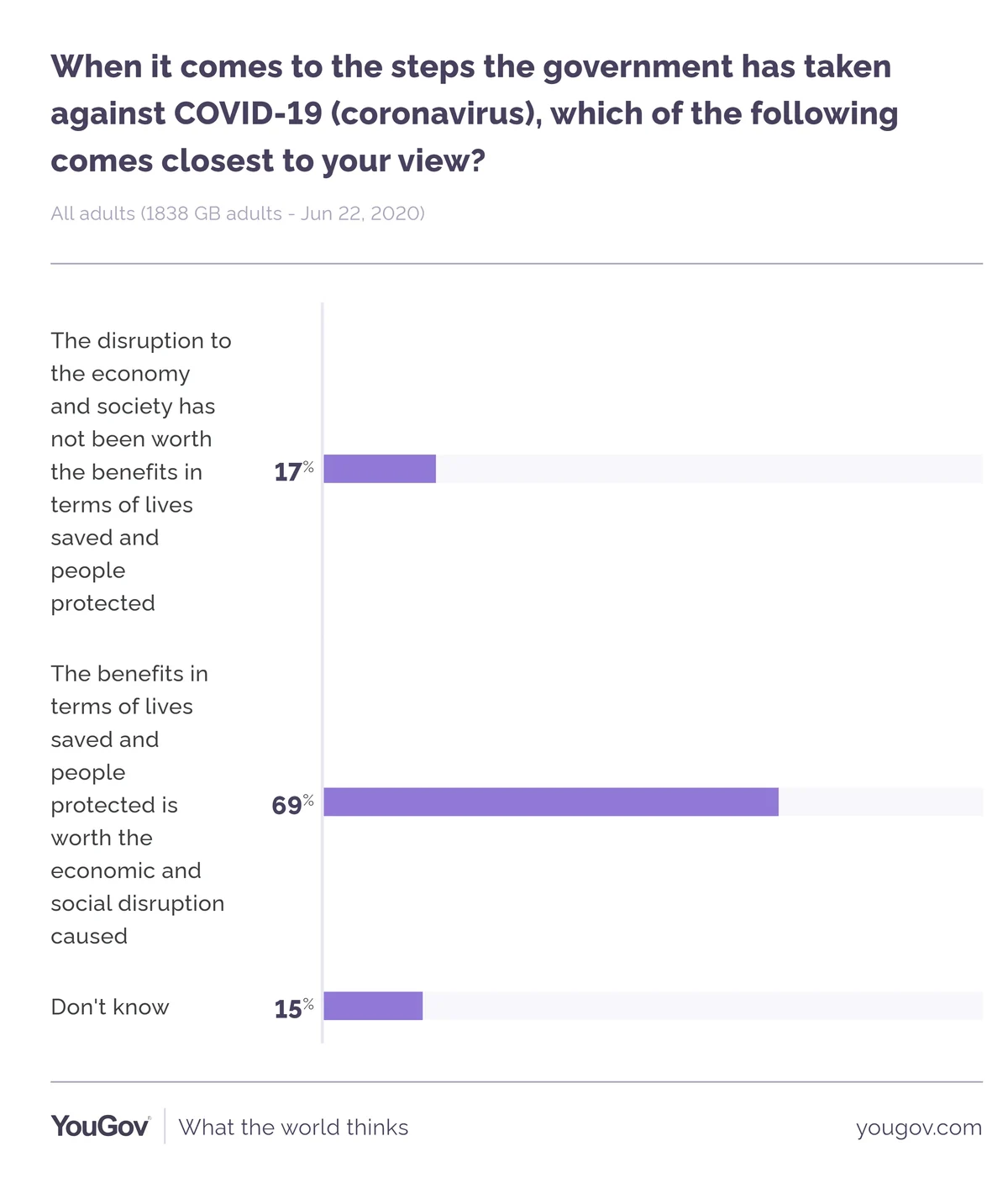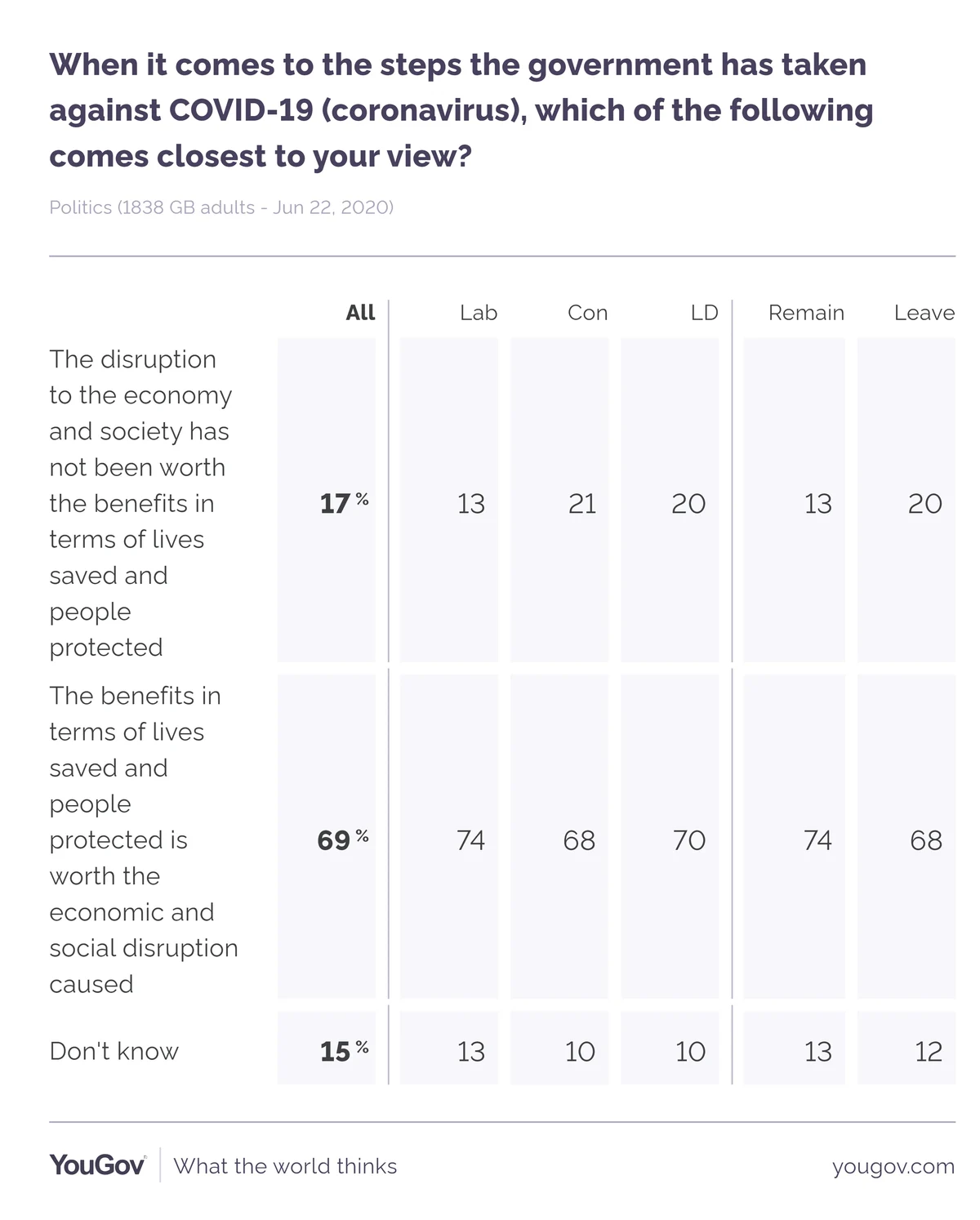Most Britons think so – for now
With lockdown easing up in early July, life in the UK will take another step back towards normality. As it does, much political and scientific discourse will focus on whether Britain was right to pursue the policies that it did.
Currently seven in ten Britons (69%) believe that the benefits in terms of lives saved and people protected has been worth the economic and social disruption caused by locking down the nation.
Only 17% of Britons disagree, seeing the economic and social cost of lockdown as too high a price to pay for the health benefits. A further 15% aren’t sure either way.

Politics and gender are the key factors in a person’s response. Although all social groups were more likely to say it has been worth it than not, men (21%) are more likely than women (12%) to think the sacrifices have been too great.
Likewise, those who backed the Conservatives (21%) or Lib Dems (20%) in 2019, or who voted Leave in 2016 (20%), are more likely to feel the price has been too great than Labour and Remain voters (both 13%).

As time goes by, however, we will be increasingly confronted, however, with the realities of the economic cost of the coronavirus.
The Bank of England has said that the economy could shrink by 14% as a result of the crisis, and that unemployment rates could double to 9%. The OECD expects the British economy to be the hardest hit of all major Western countries.
And with the government having to increase borrowing significantly to fund the job retention scheme, tax increases look likely in the near future. With the economy in recession or depression, and Britons’ finances taking a hammering, we could experience a significant change in the proportion of people who believe the lockdown was worth it.
With the very real possibility of a second wave of COVID-19, this could affect public support for returning to lockdown – if such an option is even affordable by that point. YouGov intends to keep track of public attitudes on this measure in preparation for this possibility.











